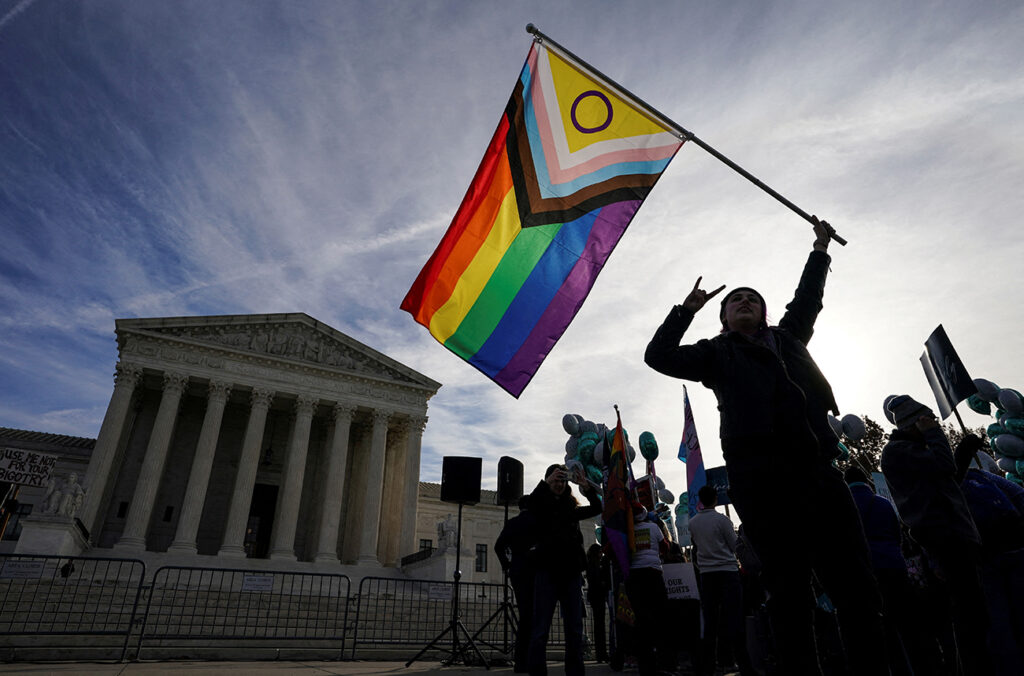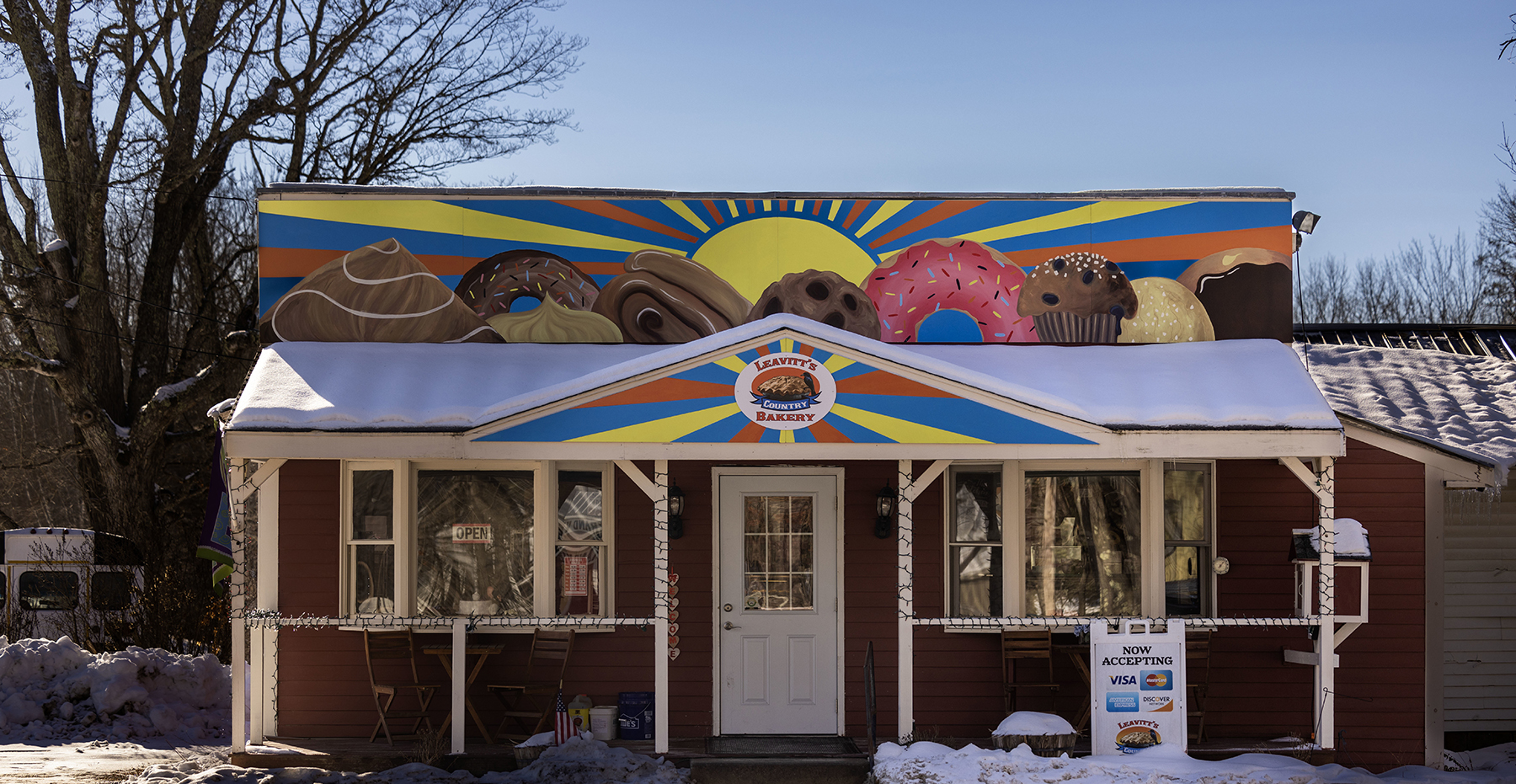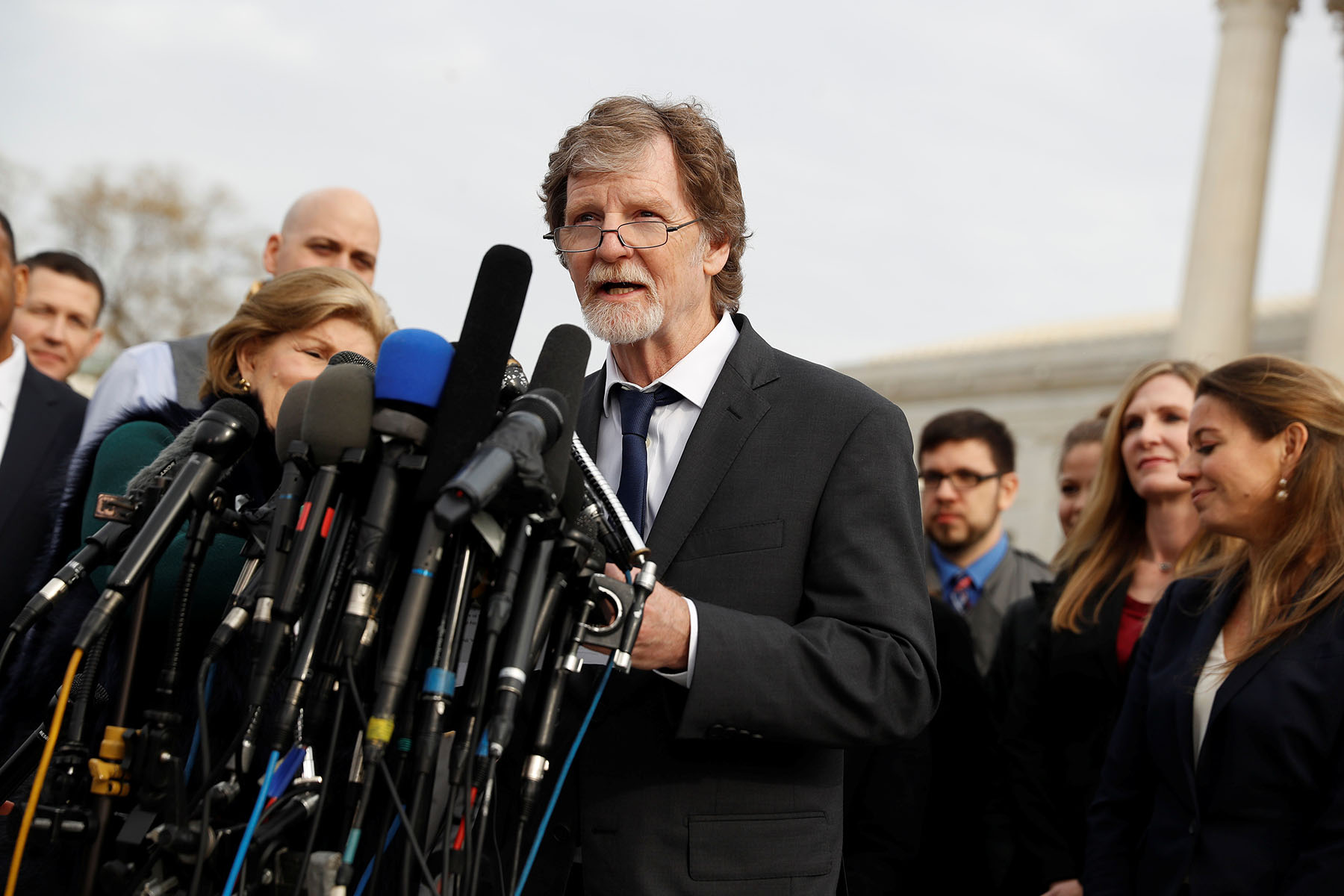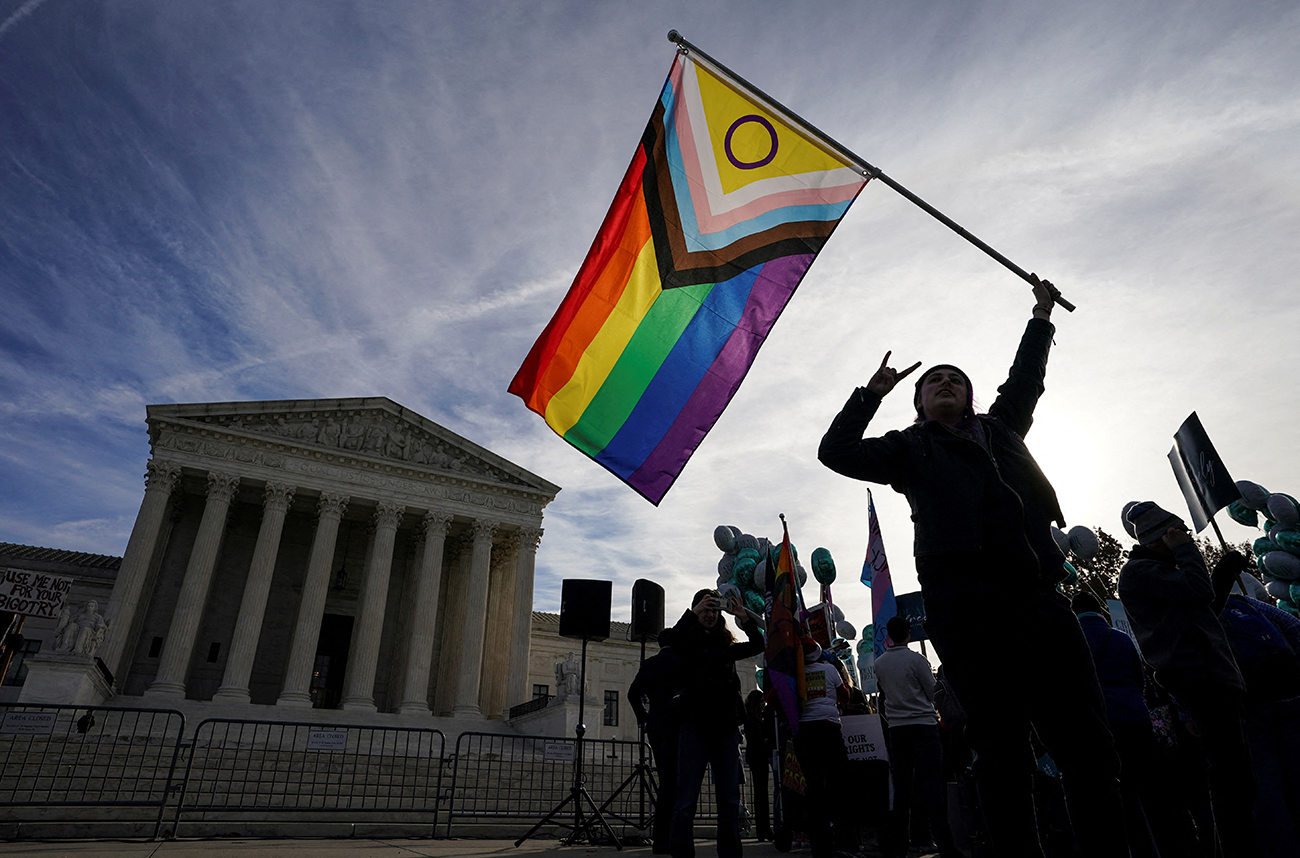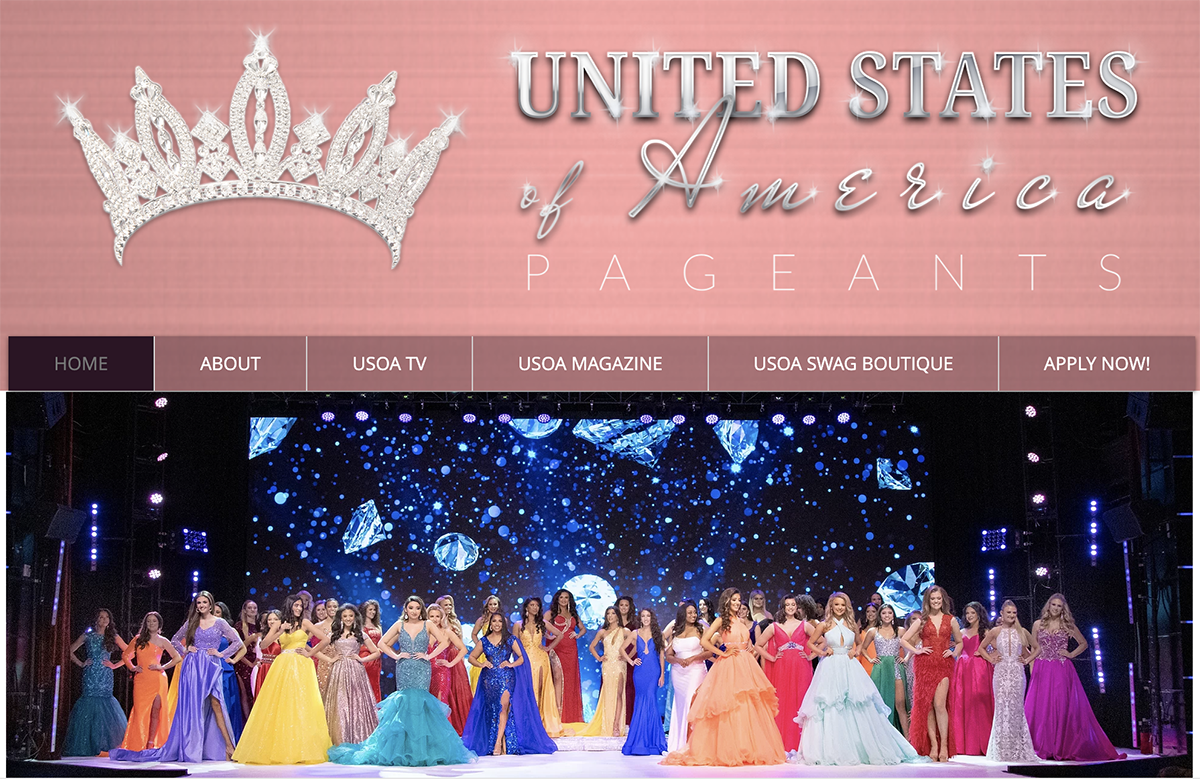The Supreme Court sided with a Colorado web designer June 30 who argued her freedom of expression was violated by the state’s anti-discrimination law requiring her to create marriage websites for same-sex couples.
In a 6-3 opinion in 303 Creative LLC v. Elenis, the court held that “the First Amendment prohibits Colorado from forcing a website designer to create expressive designs speaking messages with which the designer disagrees.”
The decision could implicate laws in 29 other states that protect LGBTQ rights in public accommodations and businesses, such as in retail stores, restaurants, parks and hotels. The remaining states’ anti-discrimination laws for public businesses do not explicitly protect against LGBTQ discrimination, but some municipalities do provide local-level protections.
The website designer, Lorie Smith, owns the design studio 303 Creative, where she designs various websites, including those celebrating marriage. Smith is an evangelical Christian, and states on her website that because of her religion, she will operate her business observing her beliefs in God.
“Because of my faith, however, I am selective about the messages that I create or promote — while I will serve anyone I am always careful to avoid communicating ideas or messages, or promoting events, products, services, or organizations, that are inconsistent with my religious beliefs,” the statement says.
The Supreme Court granted Smith’s petition in February 2022 to answer only the free speech issue: “Whether applying a public-accommodation law to compel an artist to speak or stay silent violates the free speech clause of the First Amendment,” according to the filing.
Smith wanted to include a statement on her website that says she is doing God’s work and must promote and “celebrate His design for marriage as a life-long union between one man and one woman,” according to her initial complaint filed in 2016. But this statement, if published, would discriminate against same-sex marriages and therefore violate Colorado’s anti-discrimination law. Smith argued that not being allowed to publish this statement explaining her beliefs was a violation of her First Amendment right to free speech and freedom of religion.
Justice Neil Gorsuch, who wrote for the court, referenced the 1995 Supreme Court decision in Hurley v. Irish-American Gay, Lesbian and Bisexual Group of Boston, Inc. The South Boston Allied War Veterans’ Council organized the St. Patrick’s Day Parade, and barred the participation of the Irish-American Gay, Lesbian and Bisexual Group of Boston (GLIB).
The unanimous Supreme Court held that requiring the parade organizers to include GLIB, which expressed a message the organizers did not want to convey, was in violation of the organizers’ freedom of speech.
Justice Gorsuch wrote, in the Elenis decision:
“The First Amendment’s protections belong to all, not just to speakers whose motives the government finds worthy. In this case, Colorado seeks to force an individual to speak in ways that align with its views but defy her conscience about a matter of major significance … But abiding the Constitution’s commitment to the freedom of speech means all will encounter ideas that are ‘misguided, or even hurtful.’ Hurley, 515 U. S., at 574. Consistent with the First Amendment, the Nation’s answer is tolerance, not coercion. The First Amendment envisions the United States as a rich and complex place where all persons are free to think and speak as they wish, not as the government demands. Colorado cannot deny that promise consistent with the First Amendment.”
During oral arguments in December, Justice Sonia Sotomayor said if the court ruled in Smith’s favor that it would be the first time in the Supreme Court’s history that a place of public accommodation would be allowed to refuse service “based on race, sex, religion or sexual orientation.”
Previous: Supreme Court Justices Argue Free Speech Issue in Anti-Discrimination Case
She maintained that sentiment in her dissent, adding that “the refusal to deal with or to serve a class of people is not an expressive interest protected by the First Amendment.”
“The First Amendment does not entitle petitioners to a special exemption from a state law that simply requires them to serve all members of the public on equal terms. Such a law does not directly regulate petitioners’ speech at all, and petitioners may not escape the law by claiming an expressive interest in discrimination. The First Amendment likewise does not exempt petitioners from the law’s prohibition on posting a notice that they will deny goods or services based on sexual orientation.”
She described the ruling as “heartbreaking.”
“Around the country, there has been a backlash to the movement for liberty and equality for gender and sexual minorities. New forms of inclusion have been met with reactionary exclusion. This is heartbreaking. Sadly, it is also familiar. When the civil rights and women’s rights movements sought equality in public life, some public establishments refused. Some even claimed, based on sincere religious beliefs, constitutional rights to discriminate. The brave Justices who once sat on this Court decisively rejected those claims.
Now the Court faces a similar test. A business open to the public seeks to deny gay and lesbian customers the full and equal enjoyment of its services based on the owner’s religious belief that same-sex marriages are ‘false.’ The business argues, and a majority of the Court agrees, that because the business offers services that are customized and expressive, the Free Speech Clause of the First Amendment shields the business from a generally applicable law that prohibits discrimination in the sale of publicly available goods and services. That is wrong. Profoundly wrong … the law in question targets conduct, not speech, for regulation, and the act of discrimination has never constituted protected expression under the First Amendment. Our Constitution contains no right to refuse service to a disfavored group. I dissent.”
Smith was represented by Kristen Waggoner, CEO, president and general counsel of the Alliance Defending Freedom, (ADF), a conservative legal advocacy group which describes its mandate as “committed to protecting religious freedom, free speech, the sanctity of life, parental rights, and God’s design for marriage and family.”
303 Creative LLC v. Elenis follows another similar Supreme Court case brought by ADF attorneys, including Waggoner, in 2018: Masterpiece Cakeshop v. Colorado Civil Rights Commission.
Jack C. Phillips, the owner of Masterpiece Cakeshop in Lakeland, Colorado, refused to design and create a wedding cake for a celebration of a same-sex marriage.
Phillips claimed that the creation of the cake is artistic expression protected by the First Amendment’s free speech and free exercise of religion clause. But the same-sex couple and Colorado argued that Phillips’ work on the cake is not expressive conduct according to the law and that the state has a significant interest in preventing discrimination based on sexual orientation.
The Supreme Court issued a 7-2 decision, but sidestepped the central issue — which they decided on in Elenis — and found that the commission acted improperly.
June 30, 2023 — 303 Creative LLC v. Elenis opinion
Tags
